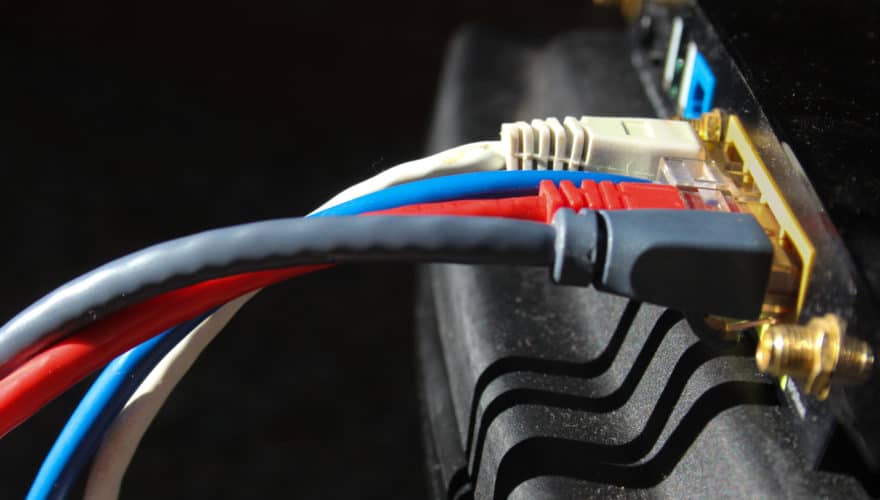Editor’s note: On Dec. 10, North Carolina lawmakers reached a deal to allocate $30 million from the state’s general fund to expand rural broadband networks. The state will use the $30 million in CARES Act funding for other expenses. For more information, see the story from The Center Square at the end of this post.
By Liora Engel-Smith, North Carolina Health News
When Karen Hammett wants to use her internet connection for a doctor’s appointment, a meeting or to check her blood test results, she thinks about her neighbors. Hammett, a retired educator who lives in the mountainous western North Carolina township of Fines Creek, knows she is competing with children engaged in virtual learning and parents working from home for limited broadband capacity.
During those times, refreshing a sluggish internet page dozens of times is not unusual, she said.
Video conferencing of any kind — the type that has become popular for primary care physician visits, school classes and a host of other business meetings can be just as frustrating, said fellow resident Larry Reeves.
“We’ve learned to adapt,” he added.
The Haywood County township of roughly 1,000 gets its name from a nearby creek. Situated on the last major I-40 exit before the Tennessee border, the village has a library that has now become an internet hot spot epicenter for locals. Hammett said it is not unusual to see several people sitting in the parking lot, working in their cars even late at night.
Internet dead zones are a reality of life for thousands of rural residents across the state, but when the pandemic moved much of life online, it erected barriers for residents who already had limited access to health care amid a pandemic that’s hitting rural areas harder.
Recognizing these difficulties, state lawmakers last spring earmarked $30 million of North Carolina’s federal coronavirus money for rural broadband infrastructure grants, also known as GREAT. The program gives matching grants to internet service providers for projects that bolster high-speed internet access in rural North Carolina.
More than 70 projects spanning roughly 50 rural communities in the state were going to benefit from that pot of money. But last month, the North Carolina Office of Broadband Infrastructure said the state determined that U.S. Department of Treasury guidelines prohibit CARES Act funds from being used for rural broadband projects.
The state is exploring options to fund these projects, North Carolina Department of Information Technology spokeswoman Mary-Alice Warren said in an email, but in the meantime, no money had materialized.
“The applications will remain active and will be considered—with top priority– if and when funding becomes available,” she wrote.

Costly upgrades
The mountains of western North Carolina draw thousands of tourists from far and wide. But Deborah Porto, who lives on the outskirts of Waynesville, a town of 10,000 roughly 30 miles west of Asheville, knows there’s hardship tucked into the picturesque mountain vistas.
Porto, who serves on the Haywood County Broadband Committee, understands that the mountains she calls home are part of the reason it’s so difficult to improve upon the county’s infrastructure.
Drilling through the granite of the Appalachians is far more expensive than burying internet lines in the sandy coastal plains, or even the rocky soil of the Piedmont.
A Haywood County project that would have connected just under 300 homes and businesses sought $2 million in matching funds from the state’s federal coronavirus money. A project of roughly the same size in Lenoir County to the east got Just over $135,000 in last year’s grant cycle. The project cost roughly $200,000 with matching funds, data from the state shows.
In the meantime, Porto said, private businesses, schools and the county’s libraries have set up wireless hot spots across the county. That, she said, is no long-term solution. Internet service through cellular hot spots is costly and doesn’t always work in the mountains, where poor reception is common.
“It’s a Band-Aid,” she said. “If you don’t have internet at all and you get access through a hot spot, that’s definitely a positive thing, but it would just literally be a Band-Aid toward wired connection.”
‘We need to fill the gap’
Similar broadband projects were slated to be funded all across the state. At least seven such projects would have benefited counties near the western tip of North Carolina. Collectively, those projects would have wired 4,600 homes and roughly 150 businesses in some of the most remote parts of the region. In all these projects would have cost roughly $11.5 million — $8 million of which would have come from GREAT, according to data from the Southwestern Commission Council of Governments , a Sylva-based organization that helped several internet service providers apply for the grants.
None of it can happen without government assistance, said Jason Maples, vice president of sales and marketing at BalsamWest, an internet service provider that operates in and around the Great Balsam Mountains, an area in the Blue Ridge mountains of western North Carolina.
BalsamWest serves around 2,000 homes and businesses. Maples estimates that at least 50,000 residents in the area lack internet access at home.
The Sylva-based company applied for the state’s coronavirus GREAT grant cycle, proposing a project that could have potentially doubled its rural customer base. BalsamWest could have provided internet access to roughly 2,700 new customers, for a total cost of $2 million, he added.
Building and providing internet in small towns and scattered homes in the more rural parts of western North Carolina isn’t financially feasible because of the cost of laying fiber, he added.
Even if he had the necessary money for the project, Maples said it would take roughly six months before any customers on the list can connect to the internet and two to three years to finish the project.
Sarah Thompson, executive director of the Southwestern Commission, said broadband projects such as the one BalsamWest proposed are on hold in the meantime until the state finds money to fund them.
The needs of residents, however, are urgent.
“You cannot exist in this pandemic without internet access,” she said. “ … We need to fill the gap.”
This story has been updated to correct the location of Waynesville.
This article first appeared on North Carolina Health News and is republished here under a Creative Commons license. North Carolina Health News is an independent, nonpartisan, not-for-profit, statewide news organization dedicated to covering all things health care in North Carolina. Visit NCHN at www.northcarolinahealthnews.org.
From The Center Square: Lawmakers, Cooper reach deal to provide $30M in rural broadband funding
By Jason Schaumburg, The Center Square
Legislative leaders and Gov. Roy Cooper‘s administration have reached a deal to free up $30 million intended to expand broadband availability in rural North Carolina, Senate Leader Phil Berger said Thursday.
Lawmakers passed and Cooper signed legislation in September that allocated $30 million in federal coronavirus relief funding for private providers to apply for grants to expand broadband through the Growing Rural Economies with Access to Technology (GREAT) Program.
Updated U.S. Treasury guidance put the funding in doubt because of questions regarding whether Coronavirus Aid, Relief and Economic Security Act-funded rural broadband projects had to be completed before the Dec. 30 deadline to spend CARES Act money.
Instead, Cooper’s administration will redirect the $30 million allocated to the GREAT program to other eligible expenses that would have been paid through the General Fund. The North Carolina Legislature then will vote on a bill early next year to appropriate the freed up $30 million from the General Fund to the GREAT program.
“I appreciate the work put in by legislators and legislative staff, working with Gov. Cooper and his team, to reach this agreement,” Berger, R-Rockingham, said. “Expanding access to rural broadband is a shared priority, and I’m glad we could successfully resolve this issue.”
“Rural broadband remains a top priority of this General Assembly, and our state is fortunate to have continued revenue availability to meet this need and make flexible budget adjustments as federal rules may require,” House Speaker Tim Moore, R-Cleveland, said.
The Office of State Budget and Management will proceed with reviewing grant applications from providers and preparing contracts. More than 70 providers had submitted an application.
“This pandemic has emphasized the importance of high-speed internet for people across our state and it is critical that we continue increasing access in rural communities,” Cooper said. “My administration is committed to following the law and getting maximum benefit from federal Covid relief funding, and I appreciate legislative leaders and my budget staff ensuring that funds can be used to expand internet access in North Carolina.”




Before you comment
The comments section is here to provide a platform for civil dialogue on the issues we face together as a local community. Xpress is committed to offering this platform for all voices, but when the tone of the discussion gets nasty or strays off topic, we believe many people choose not to participate. Xpress editors are determined to moderate comments to ensure a constructive interchange is maintained. All comments judged not to be in keeping with the spirit of civil discourse will be removed and repeat violators will be banned. See here for our terms of service. Thank you for being part of this effort to promote respectful discussion.